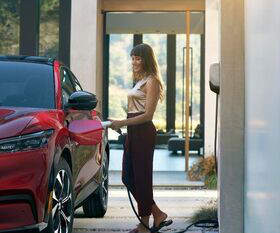FedEx adds 1,900 new lightweight composite Reach vans to fleet; 35% fuel efficiency improvement
Green Car Congress
JUNE 24, 2013
has added 1,900 lightweight, composite-body Reach vehicles from Spartan Motors , a division of Utilimaster, to its fleet. FedEx is also working with XL Hybrids, a developer of low-cost hybrid electric powertrain system, to convert ten conventionally-powered panel vans into more fuel-efficient, hybrid vehicles. In 2008, FedEx Corp.












Let's personalize your content